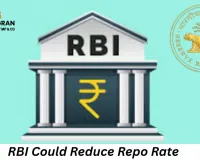Delhi High Court Pulls Up Patanjali Over ‘Fraud’ Claim in Chyawanprash Ad After Dabur Complaint
Digital Desk

Justice Tejas Karia questions Baba Ramdev-led firm’s use of “fraud” in advertisement, calls it derogatory; court reserves order on interim stay in the Dabur–Patanjali dispute.
The Delhi High Court on Thursday questioned Baba Ramdev’s Patanjali Ayurved over the use of the word “fraud” in a recent advertisement for its “Patanjali Special Chyawanprash”, following a defamation complaint filed by rival FMCG major Dabur India. The court observed that such language unfairly maligns other brands and undermines fair competition in the marketplace.
The case, heard by Justice Tejas Karia, drew attention to Patanjali’s ad in which Baba Ramdev claims that “most people are being deceived in the name of Chyawanprash.” The commercial, released last month, describes rival products as fraudulent while asserting that Patanjali’s Chyawanprash alone contains “real Ayurvedic power” with 51 herbs and saffron.
“Why do you need to use the word ‘fraud’?” Justice Karia asked Patanjali’s counsel, senior advocate Rajiv Nayar. “You could have said others are of inferior quality. How can you call all other Chyawanprash brands frauds? Couldn’t you find any other word in the dictionary?” the court remarked, reserving its decision on granting an interim stay on the advertisement.
Dabur alleges defamation, calls ad misleading
Dabur India, which dominates the Chyawanprash market with an estimated 61% share, approached the court alleging that the Patanjali advertisement constitutes defamation and unfair trade practice. Senior advocate Sandeep Sethi, representing Dabur, argued that the “fraud” remark damages the reputation of the entire product category and creates consumer mistrust.
“When Baba Ramdev — a person seen as a spiritual and moral figure — calls other Chyawanprash brands fraud, it becomes far more serious,” Sethi told the court. “Our product is made according to statutory Ayurvedic standards and approved scriptures. Such sweeping statements amount to disinformation.”
Patanjali defends ad as ‘marketing exaggeration’
Patanjali’s legal team countered that the advertisement did not directly name Dabur or any other company. Advocate Nayar described the commercial as “puffery” — a common marketing practice of emphasizing one’s own product’s superiority. “We are not calling anyone specific a fraud. We are only saying our product is genuine and effective,” he said, urging the court not to interpret the ad in isolation.
He further argued that Dabur was being “hypersensitive” because of its dominant position in the market. “Saying we are the best is not a legal violation,” he added.
Background and implications
Patanjali Ayurved, founded in 2006 by yoga guru Baba Ramdev and Acharya Balkrishna, has grown into one of India’s leading Ayurvedic FMCG groups, with a turnover exceeding ₹10,000 crore in 2023–24.
The Haridwar-based company has often faced regulatory scrutiny over its aggressive advertising claims and product labelling practices.
This latest case, now under judicial consideration, is likely to set a precedent for advertising ethics in India’s ₹4,000-crore Chyawanprash market — balancing free commercial speech with responsible communication.
As the Delhi High Court prepares its interim order, the outcome could have wide implications for advertising norms, consumer trust, and corporate accountability across India’s fast-growing health and wellness sector.






.jpg)




